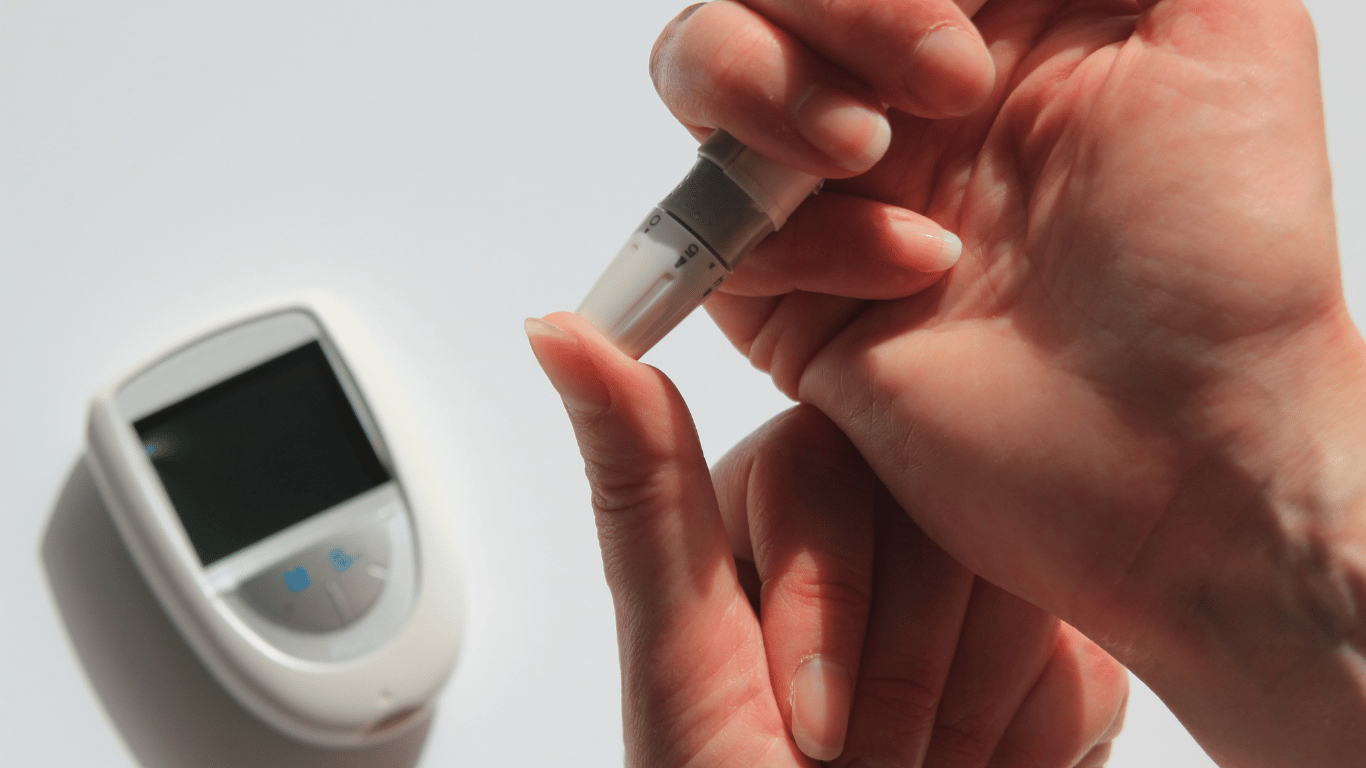Are Eggs Bad or Good for High Cholesterol? Debunking Myths and Unraveling the Science
Discover the truth about the relationship between eggs and cholesterol in this comprehensive article. Explore modern research findings and debunk myths surrounding the impact of eggs on heart health.
High cholesterol has long been a concern for many people, and eggs, being a common dietary item, have often been at the center of the debate. In this comprehensive article, we will explore the relationship between eggs and cholesterol, examining scientific evidence to determine whether eggs are bad or good for individuals with high cholesterol levels. By understanding the intricacies of cholesterol metabolism, modern research findings, and the impact of eggs on heart health, we can make informed dietary decisions. Let’s delve into the details and separate the facts from myths surrounding this topic.
Introduction
What is Cholesterol?
Cholesterol is a vital lipid (fat) present in every cell of the human body. It plays a crucial role in building cell membranes, synthesizing hormones like estrogen and testosterone, and producing bile acids necessary for fat digestion. Cholesterol is insoluble in blood, so it combines with proteins to form lipoproteins, facilitating its transportation through the bloodstream.
Understanding Good and Bad Cholesterol
Cholesterol is typically classified into two types: low-density lipoprotein (LDL) and high-density lipoprotein (HDL). LDL cholesterol is often referred to as “bad” cholesterol because high levels can lead to the accumulation of plaque in arteries, increasing the risk of atherosclerosis and heart disease. Conversely, HDL cholesterol is known as “good” cholesterol because it helps remove excess cholesterol from the bloodstream, reducing the risk of heart disease.

Eggs and Cholesterol
Nutritional Composition of Eggs
Eggs are a nutritional powerhouse, containing high-quality protein, essential vitamins, and minerals. One large egg typically contains around 186 mg of cholesterol, mainly found in the yolk. However, eggs also contain lecithin, a phospholipid that aids in emulsifying fats and cholesterol, making it easier for the body to handle cholesterol during digestion.
Eggs and Dietary Cholesterol
For decades, health organizations advised limiting dietary cholesterol intake due to the belief that cholesterol in food directly raised blood cholesterol levels. As a result, eggs, with their high cholesterol content, were often implicated as a significant risk factor for heart disease.
Link Between Dietary Cholesterol and Blood Cholesterol Levels
Early research seemed to support the idea that consuming high-cholesterol foods like eggs might elevate blood cholesterol levels. However, as research methods improved, scientists started to question the simplistic relationship between dietary cholesterol intake and blood cholesterol levels.
Studies have shown that the body tightly regulates cholesterol levels, and dietary cholesterol only has a modest impact on blood cholesterol levels for most individuals. The liver, which produces most of the body’s cholesterol, adjusts its production based on dietary intake. When dietary cholesterol intake increases, the liver compensates by reducing its own cholesterol synthesis, resulting in a balanced overall cholesterol level.
Moreover, the influence of dietary fats, particularly saturated and trans fats, on blood cholesterol levels is more significant than that of dietary cholesterol itself. A diet high in saturated and trans fats can raise LDL cholesterol levels, which is a more significant concern for heart health.

Previous Beliefs and Studies
Outdated Recommendations
In the past, dietary guidelines advised limiting cholesterol intake to 300 mg per day for healthy individuals and 200 mg for those with high cholesterol or heart disease. Eggs, as a high-cholesterol food, were often singled out, and people were urged to reduce their egg consumption.
Early Research on Eggs and Cholesterol
Early studies appeared to show a positive association between egg consumption and increased blood cholesterol levels. However, some of these studies had limitations, such as small sample sizes and a lack of control over other dietary factors.
Reevaluating the Evidence
As research methods improved, larger and more well-controlled studies were conducted to reevaluate the relationship between egg consumption and cholesterol levels. It became evident that the impact of eggs on blood cholesterol levels varied among individuals.
For the majority of people, consuming eggs in moderation did not lead to significant increases in LDL cholesterol levels. In fact, some individuals experienced an increase in HDL cholesterol, which is considered beneficial for heart health.
Furthermore, it was observed that genetic factors play a significant role in determining how dietary cholesterol affects blood cholesterol levels in some people. Those with a genetic predisposition to hypercholesterolemia may experience more substantial changes in blood cholesterol levels in response to dietary cholesterol intake.
Overall, reevaluating the evidence highlighted the importance of considering individual variations and the overall diet’s composition when assessing the impact of eggs on cholesterol levels.

Modern Research Findings
Impact of Eggs on Cholesterol Levels
Modern research has shed more light on the relationship between egg consumption and cholesterol levels, particularly LDL cholesterol. A meta-analysis published in the American Journal of Clinical Nutrition analyzed data from 17 clinical trials and found that eating up to seven eggs per week did not significantly affect LDL cholesterol levels in the majority of people.
Moreover, the same meta-analysis indicated that egg consumption increased HDL cholesterol levels, which could have a protective effect on cardiovascular health. High levels of HDL cholesterol are associated with a reduced risk of heart disease.
Different Types of Cholesterol
Understanding the different types of cholesterol is crucial in assessing the impact of eggs on heart health. As mentioned earlier, LDL cholesterol is commonly considered “bad” cholesterol because it can contribute to the development of atherosclerosis. In contrast, HDL cholesterol is known as “good” cholesterol because it helps remove LDL cholesterol from the arteries and transport it to the liver for excretion.
While eggs may raise total cholesterol levels slightly due to their cholesterol content, they have been shown to improve the LDL/HDL cholesterol ratio, which is a more accurate predictor of heart disease risk. The increase in HDL cholesterol levels associated with egg consumption appears to be beneficial for heart health, counterbalancing any potential increase in LDL cholesterol.
Role of HDL and LDL Cholesterol
HDL cholesterol is responsible for the reverse cholesterol transport process. It acts as a “scavenger,” picking up excess cholesterol from the bloodstream and arterial walls and carrying it back to the liver for elimination. This process helps prevent the buildup of plaque in the arteries and reduces the risk of atherosclerosis and heart disease.
On the other hand, LDL cholesterol can become problematic when it undergoes oxidation. Oxidized LDL cholesterol can lead to inflammation and the formation of plaque in the arterial walls, increasing the risk of heart disease.
However, it’s essential to note that not all LDL cholesterol is equally harmful. The size and density of LDL particles matter. Small, dense LDL particles are more likely to promote a proatherogenic environment, while large, buoyant LDL particles are considered less harmful. Interestingly, studies have shown that egg consumption tends to increase the proportion of large, buoyant LDL particles, which may be a more favorable cholesterol profile for heart health.

Factors Affecting Cholesterol
Genetic Predisposition
Genetics plays a significant role in cholesterol metabolism. Some individuals have a genetic predisposition to higher cholesterol levels, making them more sensitive to dietary cholesterol intake. Familial hypercholesterolemia (FH) is an inherited condition characterized by high LDL cholesterol levels, and individuals with FH may be advised to limit their dietary cholesterol intake, including eggs, to reduce the risk of cardiovascular complications.
Lifestyle Choices and Diet
Lifestyle choices, such as diet and physical activity, greatly influence cholesterol levels. Diets high in saturated and trans fats can raise LDL cholesterol levels, while diets rich in unsaturated fats, fiber, and whole grains have been shown to improve cholesterol profiles. Additionally, regular physical activity has been associated with increased levels of HDL cholesterol and improved overall cardiovascular health.
Exercise and Cholesterol
Regular exercise has numerous benefits for heart health, including its impact on cholesterol levels. Engaging in physical activity can raise HDL cholesterol levels, leading to a more favorable LDL/HDL cholesterol ratio. Furthermore, exercise helps with weight management and can improve insulin sensitivity, both of which contribute to better cholesterol profiles.

Eggs and Heart Health
Relationship Between Eggs and Heart Disease
As researchers continued to explore the relationship between egg consumption and heart health, evidence emerged that consuming eggs in moderation may not be detrimental to heart health for the majority of individuals. Several studies have shown that healthy individuals who consume up to seven eggs per week as part of a balanced diet do not experience adverse effects on cardiovascular health.
One study, known as the Diabetes and Egg (DIABEGG) study, focused on individuals with type 2 diabetes. The researchers found that consuming a high-egg diet for three months did not worsen cardiovascular risk factors, such as blood lipid levels, compared to a control group on a low-egg diet. Additionally, participants on the high-egg diet experienced weight loss and improvements in blood sugar control, further supporting the notion that eggs can be part of a healthy diet for individuals with diabetes.
It is important to note that individual responses to dietary cholesterol can vary. For some people, excessive egg consumption may lead to increased LDL cholesterol levels, while others may see minimal effects. As such, it is advisable for individuals with specific health conditions or concerns about their cholesterol levels to consult a healthcare professional or a registered dietitian for personalized advice.
Other Health Benefits of Eggs
Beyond the cholesterol debate, eggs offer various health benefits due to their nutrient-rich profile. They are an excellent source of complete protein, providing all essential amino acids required by the human body. Proteins are vital for tissue repair, muscle growth, enzyme production, and immune function.
Eggs also contain essential vitamins, including vitamin A, vitamin D, vitamin E, and several B vitamins such as B6, B12, and folate. These vitamins play crucial roles in maintaining vision, bone health, immune function, and energy metabolism.
Furthermore, eggs are a rich source of minerals like iron, zinc, selenium, and phosphorus. Iron is essential for transporting oxygen in the blood, zinc supports immune function and wound healing, selenium acts as an antioxidant, and phosphorus is vital for bone health.
Choline, another essential nutrient found in eggs, is essential for brain development and function. Choline is especially important during pregnancy, as it contributes to fetal brain development. Additionally, choline is involved in cell membrane structure and supports neurotransmitter function in the brain.

Moderation and Balance
Moderating Egg Consumption
Moderation is key when it comes to consuming eggs or any food for that matter. For individuals concerned about cholesterol levels or heart health, including eggs as part of a balanced diet is recommended.
For most people, consuming up to seven eggs per week, as suggested by the American Heart Association, does not significantly impact cholesterol levels and can be part of a heart-healthy diet. However, those with specific health conditions or genetic predispositions may need to exercise caution and monitor their cholesterol levels more closely.
Combining Eggs with a Healthy Diet
Eggs can be integrated into a heart-healthy diet when combined with nutrient-dense foods. Pairing eggs with vegetables, fruits, whole grains, and lean proteins can create a balanced and nutritious meal. Avoiding excessive use of added fats, such as butter and unhealthy cooking oils, when preparing eggs is also beneficial.
Individuals can consider incorporating egg whites or egg substitutes for those concerned about cholesterol or aiming to reduce overall cholesterol intake while still enjoying the taste and nutritional benefits of eggs.
Balancing Cholesterol Intake
Lastly, monitoring overall dietary cholesterol intake from various sources is essential. Paying attention to saturated and trans fats in the diet, which have a more significant impact on blood cholesterol levels, is crucial for heart health.

Conclusion
The Verdict on Eggs and High Cholesterol
In conclusion, the relationship between eggs and cholesterol is complex and influenced by various factors, including genetics and overall diet. For the majority of healthy individuals, consuming eggs in moderation does not appear to significantly raise LDL cholesterol levels. In fact, eggs may improve the overall LDL/HDL cholesterol ratio, offering potential cardiovascular benefits.
While eggs are a nutritious food choice and can be part of a balanced diet, it’s essential to consider individual health conditions and genetic predispositions. Individuals with specific concerns about cholesterol levels should consult a healthcare professional or registered dietitian for personalized dietary guidance.
Making Informed Dietary Choices
When making dietary decisions, it is essential to stay informed about the latest research findings. The scientific understanding of cholesterol metabolism and the impact of dietary cholesterol on blood cholesterol levels has evolved over time.
Eggs, as a nutrient-dense food, offer various health benefits and can be part of a heart-healthy diet when consumed in moderation and in combination with other nutrient-rich foods. By focusing on overall dietary balance, including a variety of nutrient sources, and engaging in regular physical activity, individuals can take proactive steps toward maintaining heart health.
Appendices
References
- Grundy, S. R., Stone, N. J., Bailey, A. L., Beam, C., Blesso, C. N., Fernandez, M. L., … & Wilson, P. W. (2019). 2018 AHA/ACC/AACVPR/AAPA/ABC/ACPM/ADA/AGS/APhA/ASPC/NLA/PCNA guideline on the management of blood cholesterol. Journal of the American College of Cardiology, 73(24), e285-e350.
- DiMarco, D. M., Norris, G. H., Millar, C. L., Blesso, C. N., Fernandez, M. L., & Fernandez, M. L. (2017). Intake of up to 3 Eggs per Day Is Associated with Changes in HDL Function and Increased Plasma Antioxidants in Healthy, Young Adults. Journal of Nutrition, 147(3), 323-329.
- Song, W. O., & Kerver, J. M. (2000). Nutritional Contribution of Eggs to American Diets. Journal of the American College of Nutrition, 19(sup5), 556S-562S.
- Fuller, N. R., Caterson, I. D., Sainsbury, A., Denyer, G., Fong, M., Gerofi, J., … & Markovic, T. P. (2018). The effect of a high-egg diet on cardiovascular risk factors in people with type 2 diabetes: the Diabetes and Egg (DIABEGG) study—a 3-mo randomized controlled trial. The American Journal of Clinical Nutrition, 107(6), 921-931.
- Mutungi, G., Waters, D., Ratliff, J., Puglisi, M., Clark, R. M., Volek, J. S., & Fernandez, M. L. (2008). Eggs distinctly modulate plasma carotenoid and lipoprotein subclasses in adult men following a carbohydrate-restricted diet. Journal of Nutrition, 138(2), 272-276.
- WebMD. (2021). What are the risks of high cholesterol? https://www.healthline.com/health/high-cholesterol
FAQs
Q: Do eggs raise cholesterol levels?
A: The impact of eggs on cholesterol levels varies among individuals. For most healthy individuals, moderate egg consumption is unlikely to significantly raise LDL cholesterol levels. Instead, eggs may improve the overall LDL/HDL cholesterol ratio, which is beneficial for heart health.
Q: Are eggs part of a heart-healthy diet?
A: Yes, eggs can be part of a heart-healthy diet when consumed in moderation and as part of a balanced meal plan. Combining eggs with nutrient-dense foods and minimizing saturated and trans fats is essential for maintaining heart health.
Q: Can individuals with high cholesterol eat eggs?
A: For individuals with specific health conditions or genetic predispositions, such as familial hypercholesterolemia, dietary cholesterol intake, including eggs, may need to be limited. It is advisable for such individuals to consult healthcare professionals for personalized dietary recommendations.
Disclaimer
The information provided in this article is for general informational purposes only and should not be considered as medical advice. It is not intended to diagnose, treat, cure, or prevent any disease. Always consult with a qualified healthcare professional or a registered dietitian for personalized advice regarding cholesterol management and dietary choices based on individual health conditions.

Camellia Wulansari is a dedicated Medical Assistant at a local clinic and a passionate health writer at Healthusias.com. With years of hands-on experience in patient care and a deep interest in preventive medicine, she bridges the gap between clinical knowledge and accessible health information. Camellia specializes in writing about digestive health, chronic conditions like GERD and hypertension, respiratory issues, and autoimmune diseases, aiming to empower readers with practical, easy-to-understand insights. When she’s not assisting patients or writing, you’ll find her enjoying quiet mornings with coffee and a medical journal in hand—or jamming to her favorite metal band, Lamb of God.







